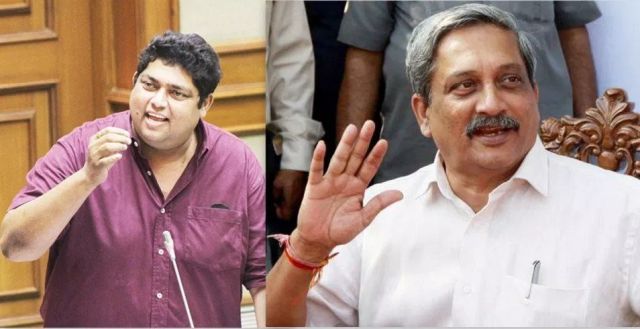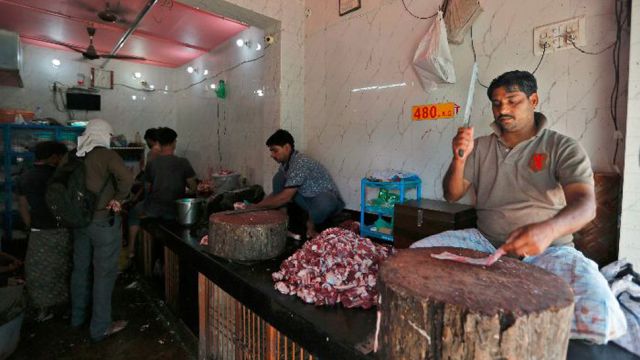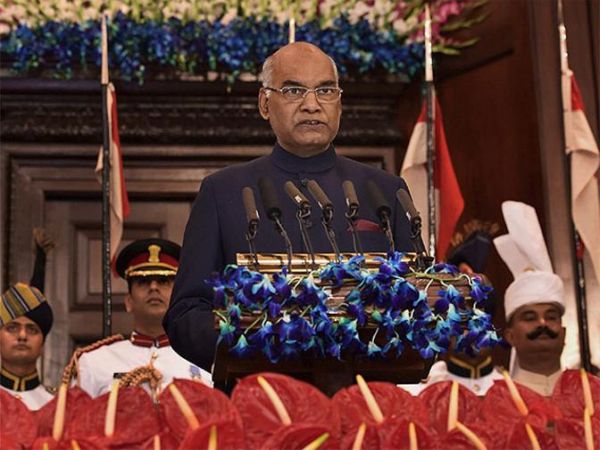
by admin | May 25, 2021 | Corporate
 By Eduardo Faleiro
By Eduardo Faleiro
Post colonialism analyses the damage done by colonialism to the colonized people in the destruction of their culture, national identity and economy.Colonialism started with military invasions and was intended to appropriate the economic resources of the colonies for the benefit of the invading countries. India was a very prosperous nation at the onset of western colonialism.
Cambridge historian Angus Wilson reveals that in1700 India’s share of the world income was 22.6% comparable to the entire income of Europe which was then at 23.3% (less than 1% difference) At the time of Independence, in 1952, India’s share fell to 2.3% of the world income. Similarly Goa was the “Golden Goa” (Goa Dourada) at the time of the Portuguese conquest in 1510 and within 100 years at the beginning of the 17th century, its decline began.
In order to destroy the identity of the colonized people so that they may not fight the colonizers and rather cooperate with them, destruction of the local cultures was a priority for the invaders. The colonial education system, for instance, was mainly intended to prepare Government servants which would be subservient and serve the interests of the colonial Government.
Several American and European Universities hold courses in Post colonialism. It will be appropriate if the Goa University also holds such a course in view of the long duration and intensity of the colonial rule here.
Indian civilization was by all accounts as developed if not more than the Western civilizations at that point of time. Will Durant, eminent American historian and philosopher and other Western intellectuals wrote that India was the motherland of the fundamentals of the Western culture and of Christianity through the ideals of the Buddha and that Sanskrit was the mother of Western languages.
Language is central to culture. It is through language that culture expresses itself and develops. In Goa, Konkani language was destroyed almost completely. During the colonial rule all educated people were expected to speak in Portuguese only and Konkani was called the “Lingua dos criados”, the language of the illiterates.
After Independence, a major challenge that the people of India in general and of Goa in particular face is to identify and develop our cultural identity. Neo-colonialism consists in the developed countries continuing to exploit the economy of former colonies. For this purpose, they rely strongly on cultural links and strengthen their cultural influence in former colonies and across the world for the resulting benefits to its multi-nationals and to its economy. The Alliance Française, the British Council, the USIS, the Goethe Institute of Germany, the Russian Cultural Centre, the Institute Confucius of China and several such cultural centres operate in most countries of the world. Indian Cultural Centres promoted by the Indian Centre for Cultural Relations, are found in very few countries.
In Goa, the language of study at the primary level should either be Konkani or Marathi. Konkani is the mother tongue of the people of Goa. Marathi is and has been over the centuries the literary language of a large segment of our population. There is no justification for English as a medium of instruction at the primary level. It could be the second language from the third standard of primary school. Cultural nationalism and the movement for Indian languages are growing all over India including Goa. In the next generation those who are not fully conversant with a national language are likely to be deprived of jobs and other spheres of activity. Emigration will also become difficult. All countries including the Gulf countries now control immigration and increasingly provide jobs only to their own nationals.
It is incorrect to say that studying at the primary level in a local language impairs academic performance. During the colonial rule some children would study in marathi primary schools and then enroll themselves in the portuguese Lyceum. They performed as well, and sometimes better, than their counterparts who did their primary education through the Portuguese medium. Some of them went on to become ministers in the Portuguese Government, senior advocates and judges at the Supreme Court of Lisbon and distinguished themselves as University professors and in other fields of activity in Portugal and elsewhere in the world.
Konkani should be taught in the Devnagri script as it will provide access to Marathi and Hindi which is the national language. Children will learn the romi script when they learn English.
There should be programmes to sensitise parents as to the need for their children to learn in the mother tongue. The State Government and the schools should collaborate with the West Zone Cultural Centre under the Union Ministry of Culture to conduct programmes for children so that they appreciate their national heritage and culture. There are also private organizations such as SPIC MACAY and INTACH that conduct such programmes for children.
(The writer is a former Union Minister)

by admin | May 25, 2021 | News, Politics

Sudin Dhavalikar
Panaji : Bikinis should only be worn in private spaces in Goa and the swim wear should not be allowed in the state’s temples and churches, Goa’s PWD Minister Sudin Dhavalikar said on Monday.
Dhavalikar, who recently returned from an official trip to Portugal, said in the past, his comments on bikinis were blown out of proportions, in the same way as his demand for an apology for injustices meted out to Goa during the colonial rule from Portuguese Prime Minister Antonio Costa were also blown out of proportions. The latter, the Minister said, cost him several seats in the 2017 Assembly elections.
“I had then said that they (those wearing bikinis) should not visit temples. This is not our culture. They should not come to churches (wearing bikinis) and people in your family will also agree that bikinis should not be worn in temples, in public places. They can do that in private places,” Dhavalikar told a press conference in Panaji.
Dhavalikar had come under flak in 2014 after he said that bikinis and short skirts were “unsafe” and against Indian culture and should not be worn in public places, including beaches.
Lavu Mamledar, an MLA from the Maharashtrawadi Gomantak Party, which Dhavalikar is a senior member of, had also demanded setting up of a special “bikini” beach on Goa’s beaches, where access would be allowed only with an entry fee.
Dhavalikar had demanded an apology from Portuguese Prime Minister Antonio Costa to Goa in 2016, a few months before the February 2017 state Assembly elections, while the Assembly discussed moving a motion to congratulate Antonio Costa, who is of Goan origin, on his appointment as PM. Dhavalikar now hints at a political motive behind the controversy.
“It was just two months before elections. That (comment) was hyped by everyone. Because of that I lost seven seats,” Dhavalikar said.
—IANS

by admin | May 25, 2021 | News, Politics
 Panaji : Goa Revenue Minister Rohan Khaunte on Saturday joined the chorus of the Opposition and other cabinet colleagues, claiming that the state administration had come to a standstill in the absence of ailing Chief Minister Manohar Parrikar.
Panaji : Goa Revenue Minister Rohan Khaunte on Saturday joined the chorus of the Opposition and other cabinet colleagues, claiming that the state administration had come to a standstill in the absence of ailing Chief Minister Manohar Parrikar.
He also alleged that a lobby of bureaucrats and individuals were surreptitiously carving up government benefits in the absence of Parrikar.
Khaunte said that the biggest hurdle in administration was the finance ministry, which is headed by Parrikar, where he said no government file has been moving for several months.
“I am very concerned when it comes to IT (Information Technology ministry), Revenue (ministry). A lot of people in the bureaucracy or in the governance side, who are not seen by the people, are taking certain things for their own benefit, their own interest or for what interest I do not know, but (it is) not in the interest of Goans,” Khaunte told reporters on Saturday.
The independent legislator, who holds the Revenue and IT portfolios, is not the first ruling politician to claim that the administration under the BJP-led coalition government had been affected due to the prolonged absence of Parrikar, who is suffering from advanced pancreatic cancer and undergoing treatment for nearly nine months now.
Town and Country Planning Minister Vijai Sardesai, Public Works Department Minister Sudin Dhavalikar, BJP MLA Michael Lobo, Maharashtrawadi Gomantak Party President Deepak Dhavalikar have in the recent past said that the administration had suffered from Parrikar’s absence.
The Congress has also repeatedly demanded Parrikar’s resignation in view of his prolonged illness.
The Congress too has in the past alleged that a cartel of bureaucrats and politically-appointed officers on special duty were calling the shots in the administration and were running the affairs of Goa.
Khaunte also said that the main obstacle for smooth governance was the finance ministry, which Parrikar holds.
“All files are rotating in different departments for the last four to five months, specially finance department, which is very frustrating for any minister to work with. As elected representatives, we become responsible for the people of Goa, as ministers to the people of Goa, as MLA to the people of my constituency,” Khaunte said.
“But, the bureaucracy is something which is not seen by the people. But I feel the administration has come to a standstill. I feel that there is nothing moving from the finance side of it,” he alleged.
—IANS

by admin | May 25, 2021 | Business, Halal Food, Halal Industries, Medium Enterprise, News, Politics

Representational image
Panaji : Even as beef traders and both ruling and opposition MLAs have alleged shortage of beef in the state, a Goa Minister on Wednesday said that there was no beef shortage reported to the state’s only legal abattoir.
Replying to a question by Opposition leader Chandrakant Kavlekar, on whether there was a beef shortage in Goa during 2017-18, Minister for Animal Husbandry and Veterinary Sercvices Mauvin Godinho, in a written reply said: “There is no shortage of beef reported to Goa Meat Complex Ltd. No animals have been slaughtered at the complex since November 2017.”
On July 27, during the monsoon session of the state legislative assembly, both ruling as well as opposition legislators had expressed concern about beef shortage in the state, blaming the non-functional abattoir as well as targeting of beef consignments brought from Karnataka.
On Tuesday, a delegation of Muslim leaders had also met Factories and Boilers Minister Vijai Sardesai, demanding that the abattoir be made functional before Eid-al-Adha.
Sardesai in turn, had assured them that a provisional permission would be granted from his Ministry to the slaughter house, to ensure that it functions before the Muslim festival.
Earlier in 2018, beef traders in Goa had gone on strike alleging harassment by cow vigilante groups and the non-functional abattoir.
Goa on an average consumes around 20-25 tons of beef every day, according to regional meat traders’ association.
—IANS

by admin | May 25, 2021 | News, Politics
 Panaji : President Ram Nath Kovind on Saturday praised the practice of the Uniform Civil Code in Goa, saying that implementation of the socio-legal system was truly reflective of the values of equality in the Indian Constitution.
Panaji : President Ram Nath Kovind on Saturday praised the practice of the Uniform Civil Code in Goa, saying that implementation of the socio-legal system was truly reflective of the values of equality in the Indian Constitution.
In his address during a civic reception here, he also said that the seaward region’s constant brush with people from different countries across the world, over ages, had earned the natives of Goa the tag of “global citizens”.
“I am happy to know that the government in Goa is laying special stress on empowering women… Goa has a common civil code, as a result of which all residents, men and women, have been given equal rights. This Code reflects the principle of equality in our Constitution and presents a good example to the country,” said Kovind, who is on a two-day visit to the coastal state.
Implementation of the Uniform Civil Code has been a key poll campaign promise of the Bharatiya Janata Party and Goa is the only state in the country, where the Code has been in existence since the pre-Liberation era.
Kovind said that the state’s exposure over time to global influences had a positive impact on the mindset of the local population, making them global in outlook.
“Because of the natural beauty, environment, its coastline, for ages Goa has been attracting people across the world. It has been important centre for international trade in the past. From Japan in the East to Africa and Western Europe, people from various countries have been visiting Goa. The extensive contact with the rest of the world has resulted in an evolved mentality, making Goans global citizens in the truest sense,” he said.
Inviting Goans to visit the Rashtrapati Bhavan, Kovind said that his official residence belonged to each citizen of the country.
“The Rashtrapati Bhavan is a symbol of our democracy and our national heritage. The Rashtrapati Bhavan does not belong to the President alone, but to every citizens of the country. I invite you to visit the Rashtrapati Bhavan. When you are in Delhi, you are welcome to the President’s House,” he said.
—IANS





